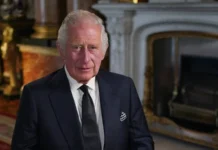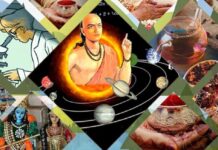Dattatreya Hosabale, general secretary of the Rashtriya Swayamsevak Sangh has created a political storm when he made a strong pitch for the deletion of the terms “Socialist” and “Secular” from the Preamble of the Indian Constitution. His rationale is that these two words were inserted in the Preamble during the Emergency and therefore the Constitution should be restored to its original form.
The Opposition has lashed out at the Sangh Parivar and has demanded that the Prime Minister should clarify whether he supported the views expressed by the RSS functionary. Leader of Opposition, Rahul Gandhi has accused the RSS of attempting to replace the Constitution with something like the Manusmriti.
If initiating a debate on the matter was the purpose behind Hosabale’s remarks, he has actually stirred a hornets’ nest. Hosabale’s comments carry significance since the RSS is in its centenary year and wants to reiterate its ideological beliefs, particularly when the BJP is in power.
Multiple RSS ideologues over a period of time have spoken about both Akhand Bharat and a Hindu Rashtra. In the diverse world we all live in, it is difficult to imagine whether these two objectives can actually be achieved. The dream of Akhand Bharat appears to be a matter of the past and the way things have been unfolding, the opposition has enough grounds to assume that the RSS and its affiliates were aiming for a Hindu Rashtra.
In the early 1990s, when L.K. Advani, was the Leader of the Opposition and the primary BJP leader, he was asked by a British journalist in his Parliament House office whether his party was looking at making India a Hindu nation. His reply was prompt and he made two very important points.
He said that India was predominantly a Hindu country in the same way as England was a Christian country. However, like in England, people of other faiths lived and co-existed despite its pronounced Christian character, the same was true of India where those practising different religions lived and co-existed with the majority community.
His second point was apparently based on the Balraj Madhok doctrine, which is often repeated by others like Dr Subramanian Swamy. India, Advani said, was a democracy, since it was a Hindu dominated country. The implication was that if India was dominated by any other community, it would have not been a democracy. The reference was to Islamic countries where true democracy does not exist.
Hosabale’s observations came during a function to mark 50 years of the Emergency.
Many scholars are of the view that both “Secular” and “Socialist” were enshrined in the Preamble to stress on the character of the Constitution where Fundamental Rights and Directive Principles of State policy play a significant role. Fundamental rights underline equality and freedom and they are justiciable.
On the other hand, Directive Principles serve as guidelines for the government but are not justiciable.
There can be arguments on both sides if one looks at the issue academically. The term “Secularism” reflects the equality granted to all religions and an equal status. “Socialist” reminds those in power of their responsibility towards the deprived and under privileged. After the liberalization of the economy during P.V. Narasimha Rao’s tenure, the narrative had changed from what it was earlier. Similarly, after the BJP came to power, the focus on
Hindutva politics has enhanced and divisive agenda has become dominant.
Hosabale’s objective while making his comments was perhaps to ignite a debate and also provide a fresh twist to the caste census exercise which is in any case against the beliefs of the RSS as it tends to divide Hindu society. Many people who endorse the Sangh policies may feel that it was the opportune time to talk of religion, and when “Secular” is dropped from the Preamble, it paves the way for a Hindu Rashtra in spirt if not in form. The Emergency debate has also brought to fore many contradictions which need fresh explanation in the present times. It is well known that Indira Gandhi had towards the end of the Emergency, ordered the release of several RSS functionaries. After the Janata government experiment failed and several constituents of the newly formed party demanded that the erstwhile Bharatiya Jana Sangh members should give up the dual membership of the RSS, all hell broke loose and the government fell.
There was a meeting between some RSS leaders and the late Sanjay Gandhi towards the end of the 1970s where issues of mutual interests were discussed. Sanjay had made it clear to the RSS leaders that he was not anti-Muslim so that could not be a meeting ground. But like Sangh, he had an aversion for the Communists and the Left and therefore they could cooperate on this matter.
The 1979 elections saw Indira Gandhi win over 350 seats and return to power. Obviously, people were disillusioned with those who had replaced her following the Emergency. The RSS had supported the Congress both in those elections and the polls that followed Indira Gandhi’s assassination. It is a well-known fact that Rajiv Gandhi enjoyed a special bond with Bhaurau Deoras, the younger brother of then RSS chief, Balasaheb Deoras.
It needs to be also understood that the Emergency was imposed in accordance with the provisions of the Constitution that existed at that time, though its consequences led to atrocities and immense hardships for political opponents of the Congress. Between us.







